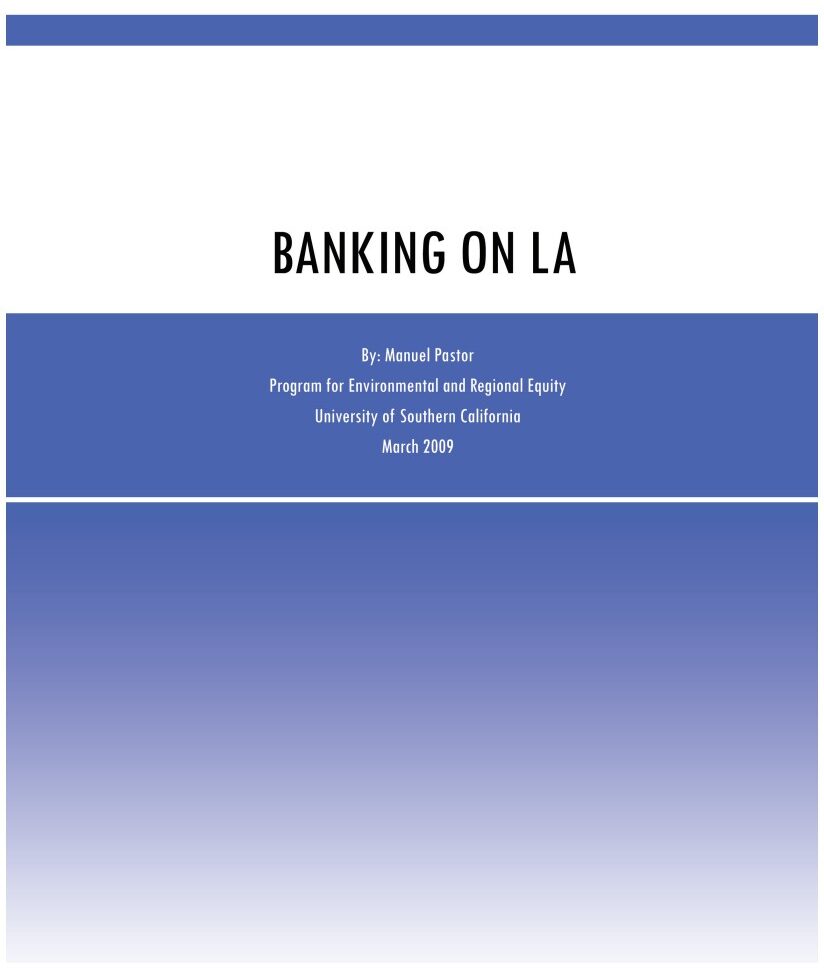
March 2009
By Manuel Pastor
Please note: reports dated earlier than June 2020 were published under our previous names: the USC Program for Environmental and Regional Equity (PERE) or the USC Center for the Study of Immigrant Integration (CSII).
We are pleased to announce the release of a new report from USC’s Program for Environmental and Regional Equity (PERE). Banking on LA, a synthesis of several research efforts with a special lens applied to Los Angeles, offers a vision of how a recommitment to providing full banking services in lower-income neighborhoods could create pathways from poverty, rebuild the middle class and strengthen the region.
Being poor is hard enough; being poor and unbanked is worse. Forced to turn to payday lenders, check cashers, and other high-cost financial services, hard-working families see their income depleted and their wealth sapped. In areas like Southeast L.A., non-traditional financial services outnumber bank branches fivefold and Latinos and African Americans are significantly overrepresented in the unbanked population even within the city’s low- and moderate-income neighborhoods.
Why the mismatch? On the one hand, banks often do not see the potential in low-income communities, partly because traditional methods of evaluating local markets do not fully take into account population density and informal economic activity. On the other, low-income consumers do not always see the banks, partly because branches are scarcer but also because fewer people in their social networks have banking accounts and banks do not always successfully publicize starter accounts.
Los Angeles has just formally kicked off its own Bank on LA initiative to address these issues. With the country’s largest unbanked population, the City is working with banks and community groups to publicize accounts, provide financial literacy classes, and create the opportunity for low-income individuals to save and accumulate for themselves and their children. The effort will be tracked with an extensive monitoring system to see exactly what difference it can make.
We thank the Annie E. Casey Foundation and the Wallis Annenberg Fund for Leadership and Innovation, at the Liberty Hill Foundation, for providing funds for this and the other research pieces related to the Bank on LA effort.



